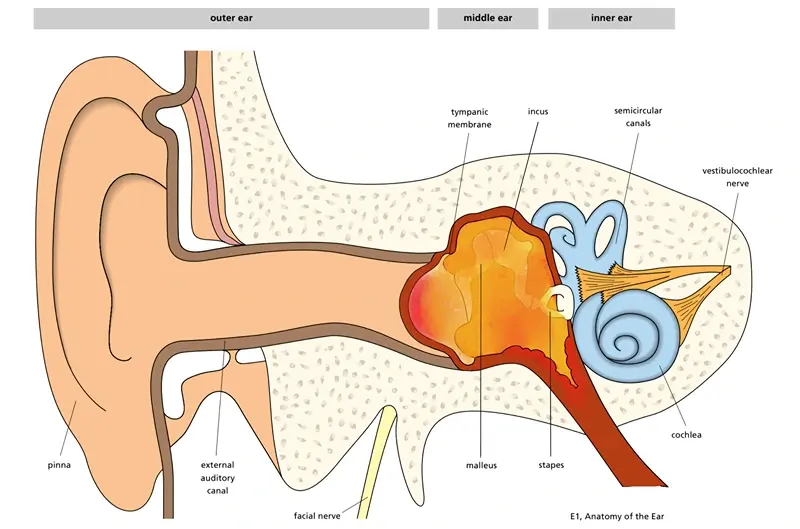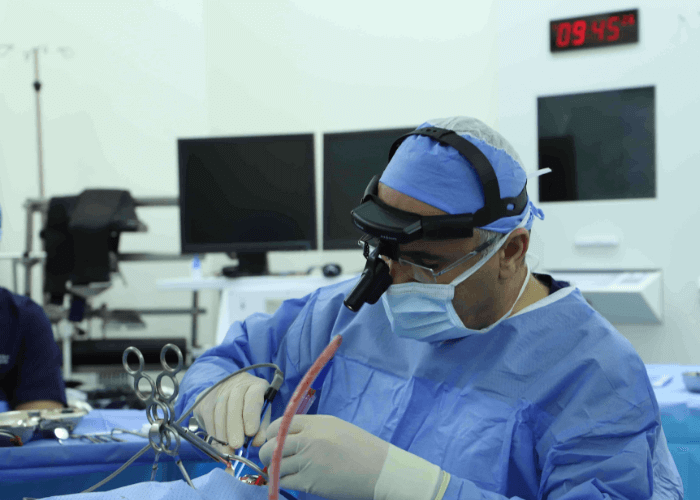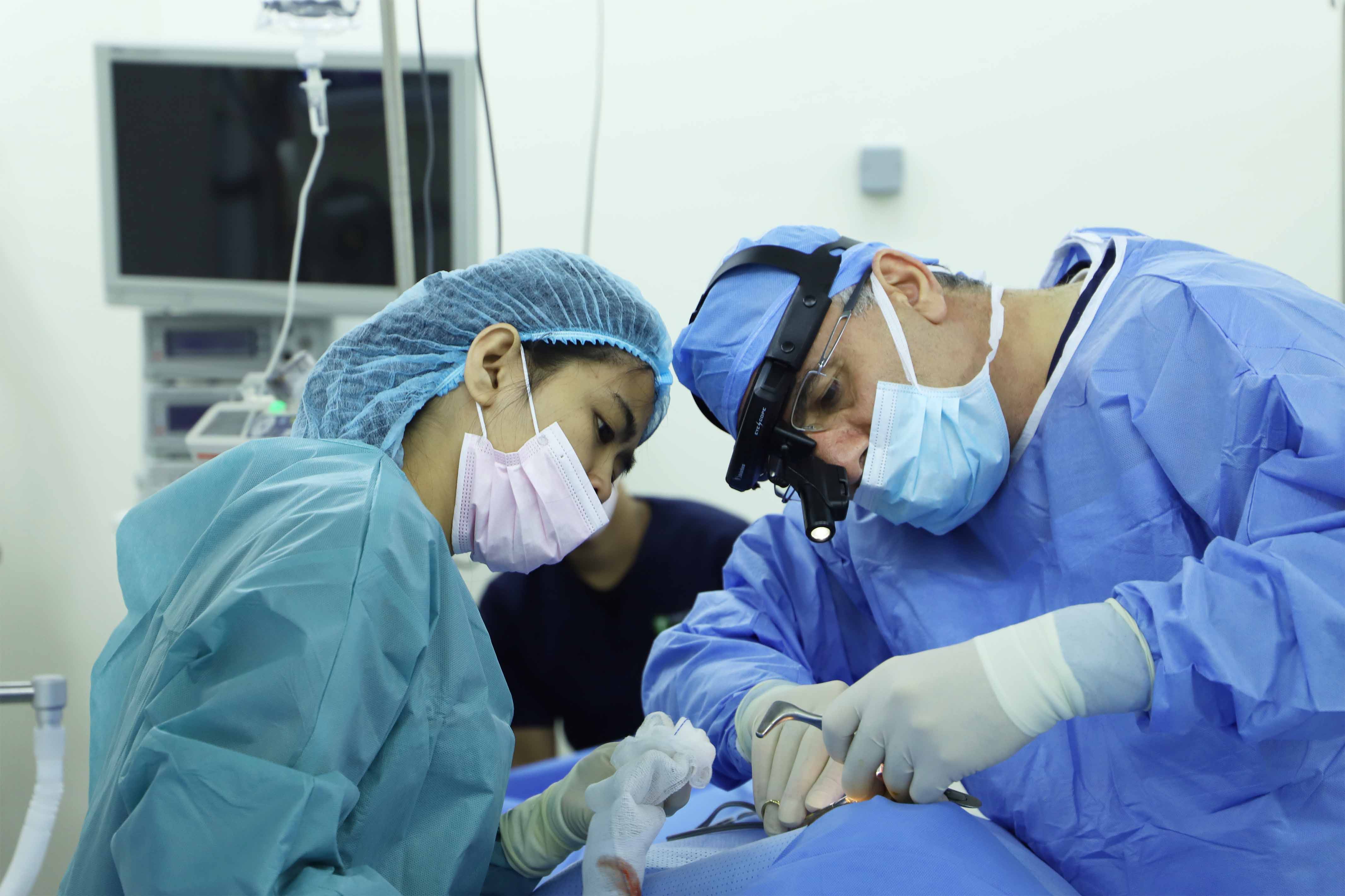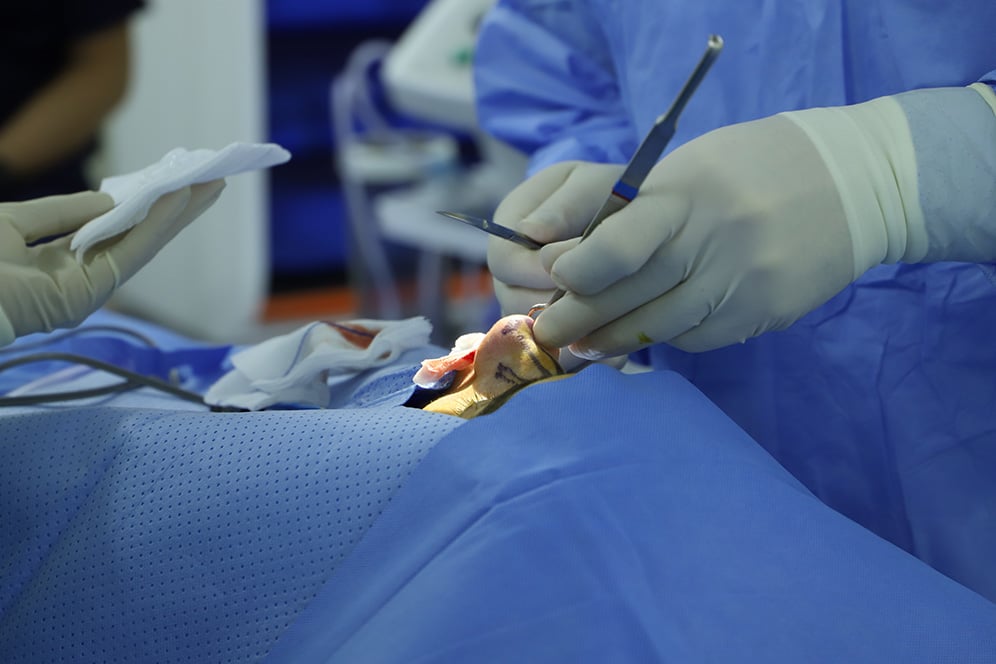Middle Ear Infections at DRHC Dubai ENT Clinic
Overview of Middle Ear Infections
Middle ear infections, also known as otitis media, occur when bacteria or viruses cause inflammation and fluid buildup behind the eardrum. These infections are common in children but can also affect adults. If left untreated, they may lead to complications such as hearing loss or the spread of infection to nearby structures.
Causes of Middle Ear Infections
Middle ear infections usually develop due to:
- Bacterial or Viral Infections – Often occur following a cold, flu, or respiratory infection.
- Eustachian Tube Dysfunction – Blockage of this tube, which connects the middle ear to the throat, prevents fluid drainage, leading to infections.
- Allergies – Can cause swelling in the nasal passages and block proper ear drainage.
- Sinus Infections – May spread to the middle ear, causing inflammation.
- Exposure to Smoke or Pollutants – Increases the risk of infections, especially in children.
- Enlarged Adenoids – Can block the Eustachian tubes and trap bacteria.
Symptoms of Middle Ear Infections
Symptoms may vary based on the severity of the infection and the patient’s age. Common signs include:
- Ear Pain – Ranging from mild discomfort to severe pain.
- Hearing Loss – Due to fluid buildup affecting sound conduction.
- Ear Fullness or Pressure – A sensation of congestion in the affected ear.
- Drainage of Fluid from the Ear – Yellow or bloody discharge in cases of a ruptured eardrum.
- Fever – Common in children with infections
- Dizziness or Balance Issues – Infections affecting the inner ear can cause vertigo.
- Irritability and Trouble Sleeping (in children) – Infants and toddlers may show discomfort by pulling at their ears.
Diagnosis of Middle Ear Infections
At DRHC Dubai, our ENT specialists diagnose middle ear infections using:
- Otoscopy – A specialized instrument to examine the eardrum for redness, bulging, or fluid buildup.
- Tympanometry – Measures eardrum movement to detect fluid in the middle ear.
- Hearing Tests – Evaluate any temporary hearing loss caused by infection.
- Ear Fluid Culture (if necessary) – Helps determine the type of bacteria causing the infection for targeted treatment.
Treatment Options for Middle Ear Infections
The treatment approach depends on the severity and cause of the infection:
1. Medications
- Pain Relievers – Acetaminophen or ibuprofen to relieve discomfort and fever.
- Antibiotics – If the infection is bacterial, a course of antibiotics like amoxicillin may be prescribed.
- Decongestants & Nasal Sprays – To help clear Eustachian tube blockages.
2. Ear Tubes (Tympanostomy Tubes)
For recurrent or chronic infections, a minor surgical procedure may be recommended to insert tiny ventilation tubes into the eardrum. These tubes help drain fluid and prevent future infections.
3. Adenoid Removal (Adenoidectomy)
If enlarged adenoids are contributing to frequent infections, they may be removed to improve ear drainage.
4. Home Care & Supportive Treatments
- Warm Compresses – Helps relieve pain and swelling.
- Hydration – Drinking plenty of fluids can help clear mucus from the Eustachian tubes.
- Rest and Avoidance of Irritants – Staying away from smoke and allergens can aid in faster recovery.
Possible Complications of Untreated Middle Ear Infections
- Hearing Loss – This can become permanent if infections are recurrent.
- Eardrum Perforation – Chronic infections may lead to a rupture of the eardrum.
- Mastoiditis – A serious infection that spreads to the mastoid bone behind the ear.
- Meningitis – In rare cases, the infection can spread to the brain lining.
Prevention of Middle Ear Infections
- Frequent Handwashing – Reduces the risk of viral infections that can lead to ear infections.
- Vaccinations – Keeping up to date with flu shots and pneumococcal vaccines helps prevent infections.
- Avoid Secondhand Smoke – Smoke exposure increases the risk of infections in children.
- Breastfeeding (for infants) – Strengthens the immune system and reduces ear infections.
- Treat Allergies Promptly – Managing allergies can help keep the Eustachian tubes clear.
Why Choose DRHC Dubai for Middle Ear Infection Treatment?
- Experienced ENT Specialists – Expertise in diagnosing and managing all types of ear infections.
- Advanced Diagnostic Tools – State-of-the-art otoscopy, tympanometry, and hearing tests.
- Minimally Invasive Treatment Options – Including ventilation tubes and adenoidectomy for chronic cases.
- Comprehensive Pediatric & Adult Care – Tailored treatment for all age groups.
- Personalized Treatment Plans – Ensuring the best outcomes for every patient.
Click here for ENT surgical packages
.png?width=281&height=59&name=bookanappointment%20(1).png)
Dubai ENT clinic—If you are looking for an ENT specialist in Dubai, DRHC provides experienced and leading ENT doctors in Dubai for healthy treatment. To book an appointment, please call +97142798200 today!




.png?width=281&height=59&name=bookanappointment%20(1).png)
.jpg?width=1080&height=1080&name=DR%20HATEM%20(1).jpg)



